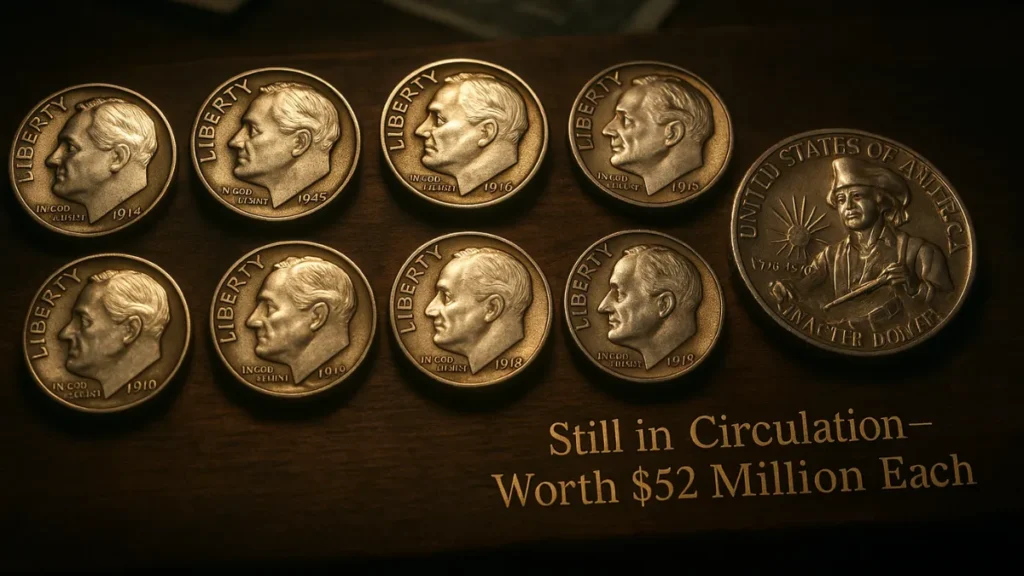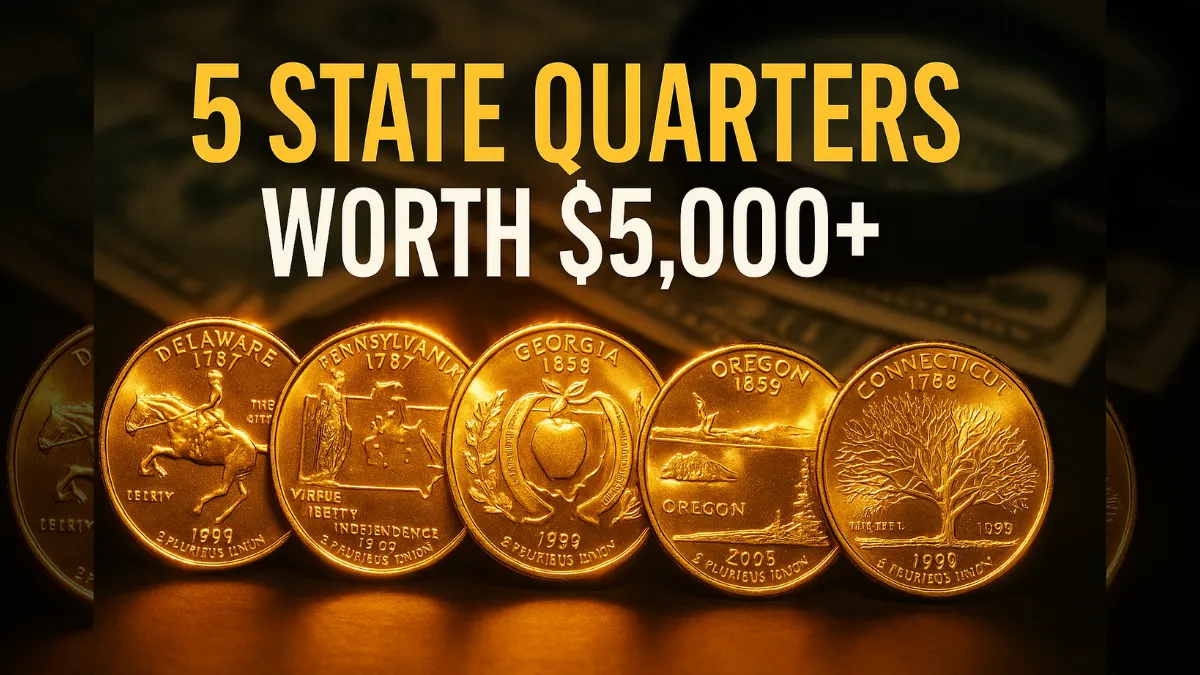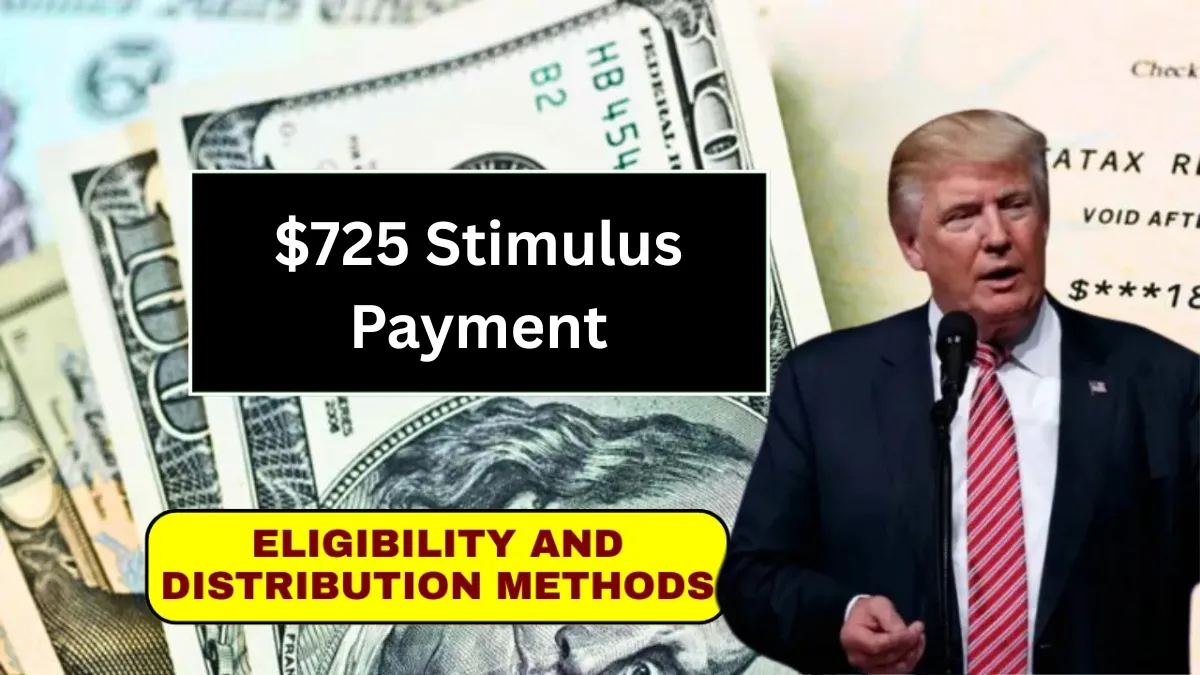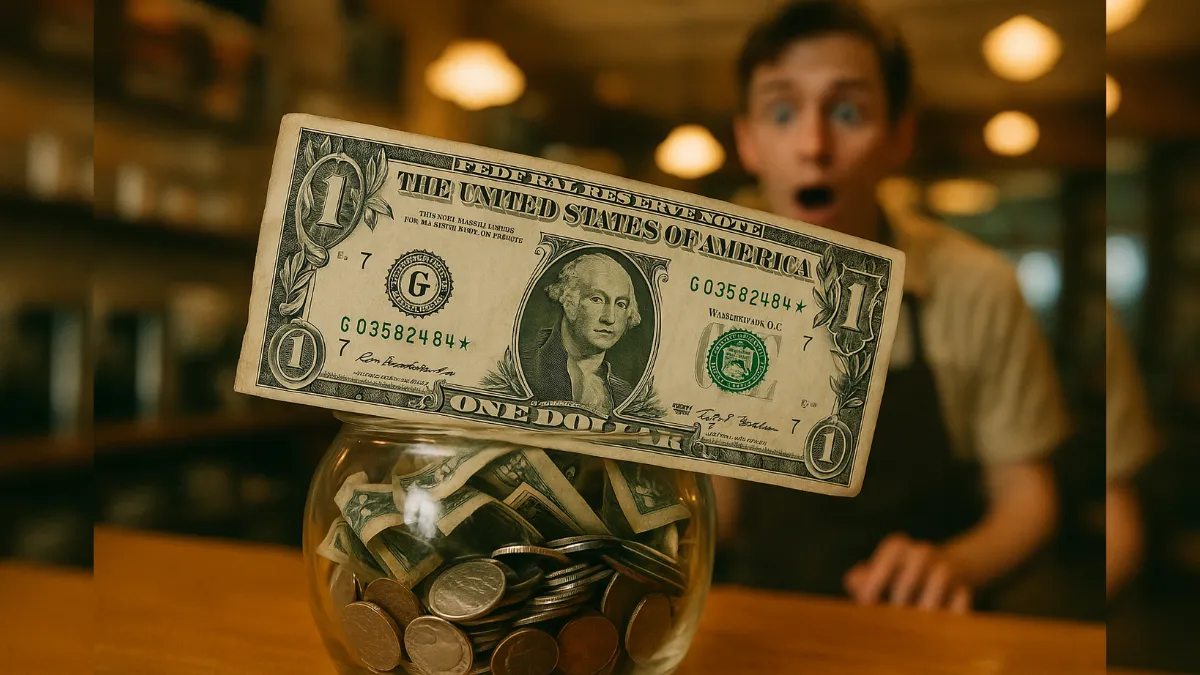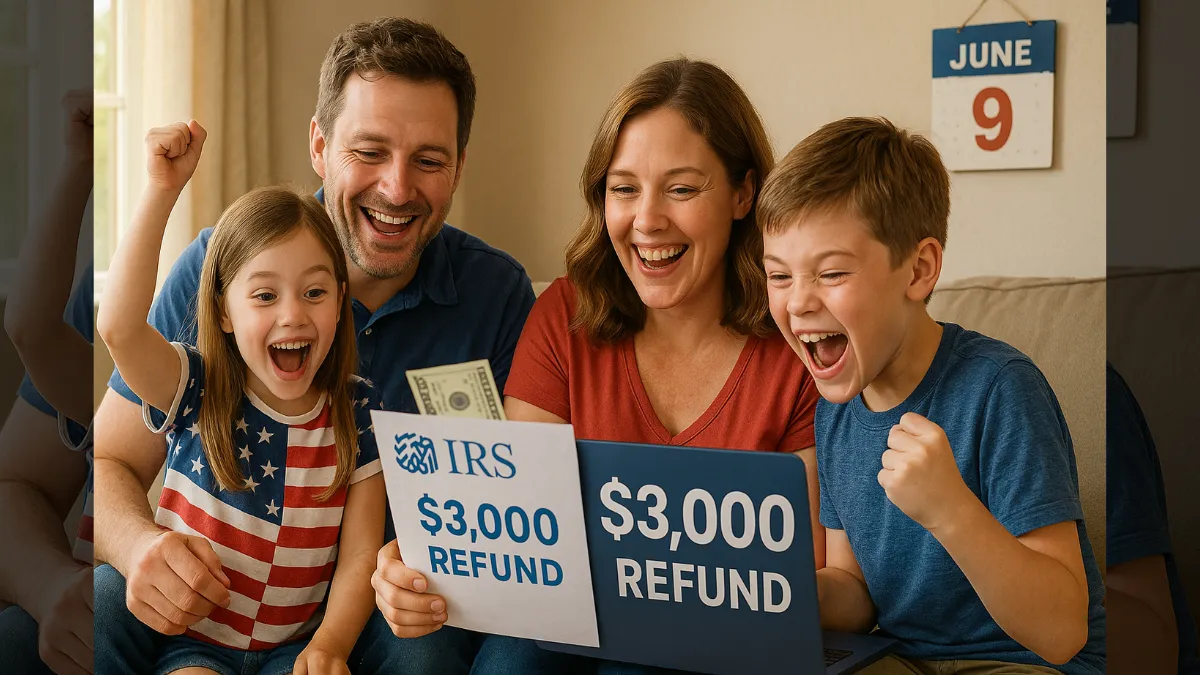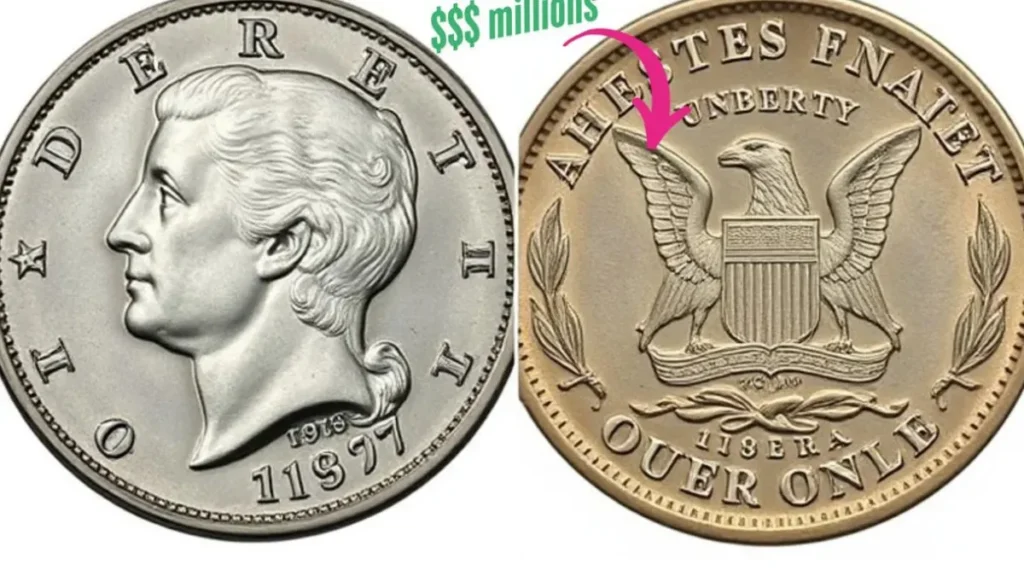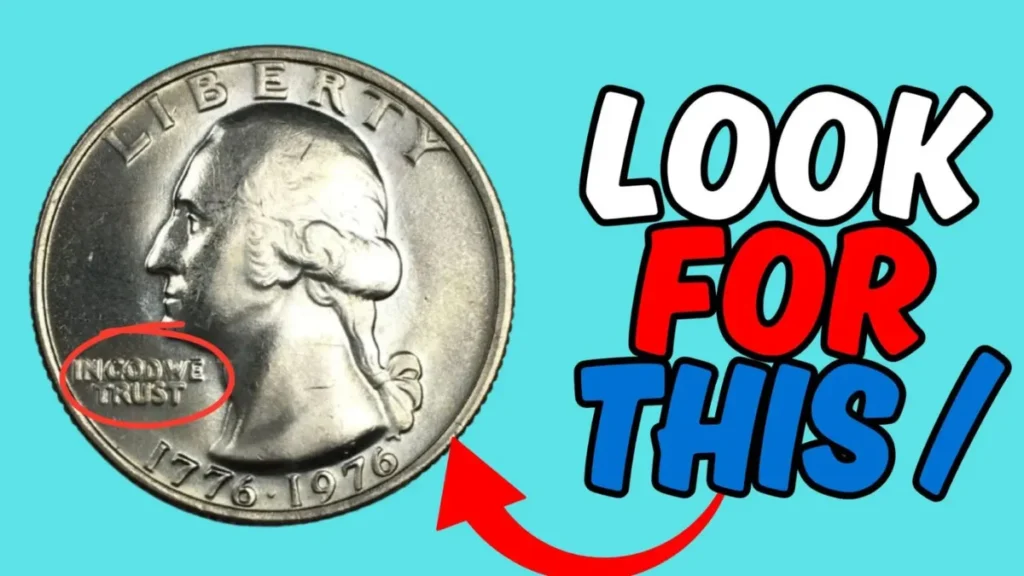Eight Rare Dimes and a Bicentennial Quarter That Could Be Worth $52 Million Each.
Have you ever thought that the coins in your pocket might hold incredible value? Some U.S. dimes along with a special Bicentennial quarter are known to be worth as much as $52 million each, thanks to their scarcity, minting flaws, and historical significance.
This guide will help you understand how to spot these valuable coins and where you might come across them.
Overview of High-Value Coins
| Feature | Details |
|---|---|
| Top Valued Coins | Eight collectible dimes and a rare Bicentennial quarter valued up to $52 million each |
| Key Identifiers | Rare mint marks, minting mistakes, and limited production years |
| Helpful Tips | Check dates, mint marks, and coin condition; seek advice from coin experts |
| Trusted Resources | United States Mint, PCGS, NGC, and numismatic groups |
| Search Methods | Hunting through coin rolls, estate auctions, antique stores, and online sites |
Why These Coins Are So Valuable
The worth of a coin depends mainly on three aspects: rarity, condition, and its historical background. Coins with fewer numbers minted or surviving tend to be more valuable, especially if they are well preserved or contain minting errors. Some notable examples include:
- 1894-S Barber Dime: Only 24 were ever made, and just 9 are known to still exist.
- 1916-D Mercury Dime: Produced in limited numbers (around 264,000), it’s highly prized in excellent condition.
- Bicentennial Quarter: While commonly found, some error or uncirculated versions can command huge prices.
Each of these coins reflects unique stories about America’s past, economic conditions, and how coins were minted at the time.
How to Identify Valuable Coins
You don’t need to be an expert to spot coins that might be valuable. Here’s a simple approach to get started:
- Check the Date and Mint Mark
Look for coins with rare production years or unusual mint marks, like the “D” on the 1916-D Mercury Dime. Reference books such as The Red Book can be very useful. - Look for Minting Errors
Coins with mistakes—like doubled images, off-center designs, or clipped edges—are often more valuable. For example, a 1955 Lincoln cent with a doubled die on the front once sold for over $100,000. - Evaluate the Condition
Coins are graded on a scale from 1 to 70 based on condition, with higher grades being more valuable. Using a magnifying glass can help you spot any damage or wear. - Get a Professional Opinion
If you suspect your coin is rare, have it authenticated and graded by trusted organizations such as PCGS or NGC.
Best Places to Look for Rare Coins
Hunting for rare coins can be exciting. Here are some good places to start your search:
- Coin Roll Hunting
Ask your bank for rolls of coins and sift through them looking for older or unusual pieces. - Estate Sales and Auctions
Vintage coin collections often appear in estate sales. These events are great for finding hidden treasures. - Antique Shops and Flea Markets
Sometimes sellers don’t realize the value of the coins they have. Building relationships with these sellers might lead you to valuable finds. - Online Marketplaces
Platforms like eBay and auction sites often list rare coins. Just be sure to verify their authenticity before buying.
Famous Rare Coins and Estimated Values
- 1894-S Barber Dime: Valued at over $2 million, with only 9 known survivors.
- 1916-D Mercury Dime: Can be worth $200,000 or more, especially in excellent condition.
- Bicentennial Quarter (Error Versions): Certain rare errors could be valued as high as $52 million.
FAQs
What makes the 1894-S Barber Dime so valuable?
Only 24 were made, and fewer than 10 are confirmed to still exist, which makes it extremely rare.
How can I tell if my Bicentennial quarter is rare?
Look for minting errors, an uncirculated state, or uncommon mint features that increase its value.
Where should I get my coin appraised?
Trusted grading services like PCGS and NGC offer reliable coin authentication and valuation.
Can I still find valuable coins in everyday change?
Yes, occasionally rare coins appear in circulation, so hunting through change or coin rolls can be rewarding.
Matthew K. Ayers is a seasoned finance writer with a sharp eye for market trends and economic insights. With a background in financial analysis and a passion for simplifying complex topics, he crafts clear, actionable content to help readers make smarter money decisions. From personal finance to global markets, Matthew delivers trustworthy advice with clarity and precision.
